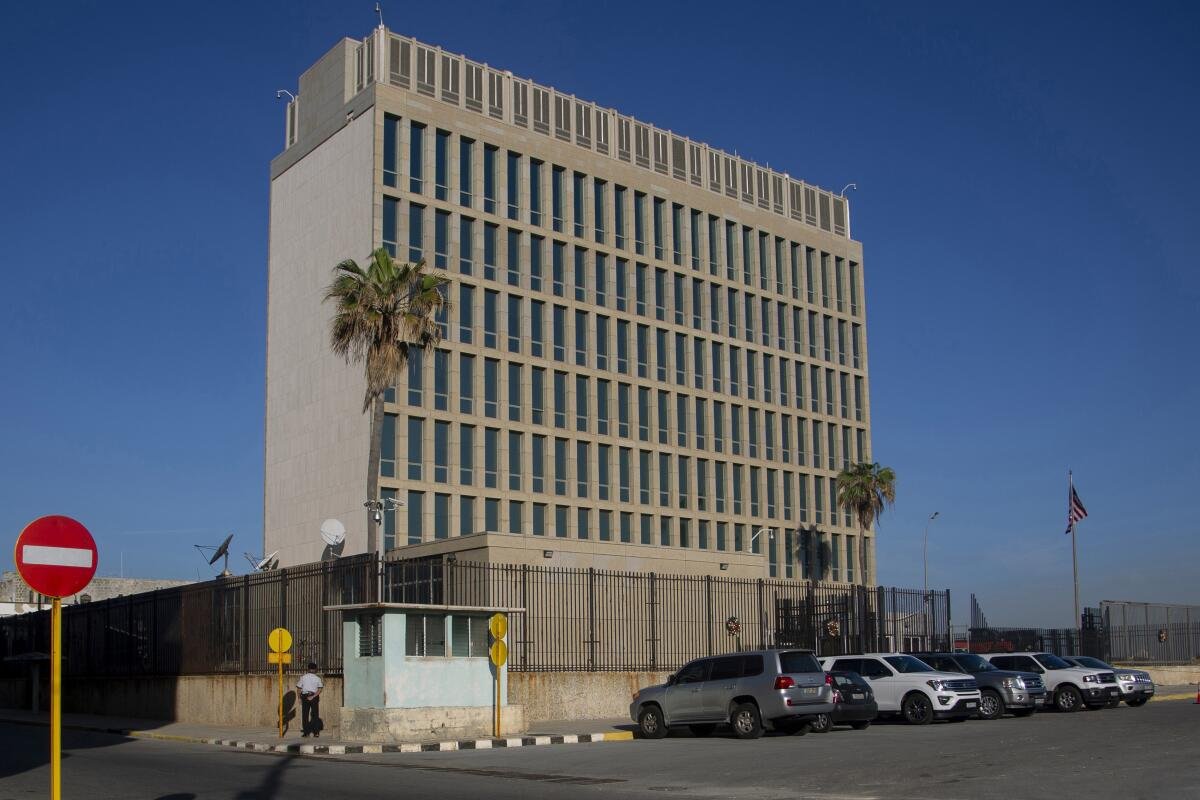A comprehensive array of advanced tests conducted over nearly five years by the National Institutes of Health (NIH) has revealed no evidence of brain injuries or degeneration among US diplomats and government employees experiencing mysterious health issues previously referred to as “Havana syndrome,” researchers announced on Monday.
The study, which sheds light on symptoms such as headaches, balance problems, and cognitive difficulties reported initially in Cuba in 2016 and subsequently by numerous American personnel across various countries, offers no definitive explanation for the condition.
Despite the absence of a clear cause, the research contradicts earlier speculations that suggested brain injuries might underlie what the State Department now terms “anomalous health incidents.”
Dr. Leighton Chan, NIH’s chief of rehabilitation medicine and a lead researcher in the study, emphasized the severity of the symptoms experienced by affected individuals, acknowledging the challenges they face in coping with these issues.
Sophisticated MRI scans failed to identify significant disparities in brain volume, structure, or white matter between Havana syndrome patients and healthy counterparts with similar job roles, including those serving in the same embassy. Cognitive tests also yielded no significant differences, as detailed in the findings published in the Journal of the American Medical Association.
Although the study cannot entirely rule out transient injury at the onset of symptoms, researchers find solace in the absence of long-term brain scan markers typically associated with trauma or stroke, offering reassurance to patients.
Approximately 28% of Havana syndrome cases were diagnosed with persistent postural-perceptual dizziness (PPPD), a balance disorder linked to inner-ear issues and severe stress. French described PPPD as a “maladaptive response,” akin to posture difficulties experienced by individuals even after resolving back pain.
Participants in the Havana syndrome study reported heightened levels of fatigue, posttraumatic stress symptoms, and depression.
The findings mark the latest endeavor to unravel the mystery surrounding Havana syndrome, which initially manifested as hearing loss and ear-ringing among US embassy personnel in Cuba following exposure to unusual sounds.
While early concerns centered on the possibility of a directed energy attack by Russia or another foreign entity, recent assessments from US intelligence agencies suggest diverse causes ranging from undiagnosed illnesses to environmental factors.
Despite the NIH study’s comprehensive scope, limitations in current medical technology and study design prompt calls for further research to anticipate and address future health mysteries, as outlined by Dr. David Relman of Stanford University in an editorial published in JAMA on Monday.
The NIH study, involving over 80 Havana syndrome patients, was not explicitly designed to investigate the likelihood of an external weapon or trigger for the symptoms. However, it aligns with intelligence agencies’ conclusions that no persistent or detectable pathophysiological changes resulted from any potential external phenomenon.
The State Department acknowledged the NIH findings, emphasizing its commitment to providing affected employees and family members with compassionate medical care and support.



